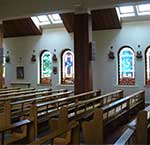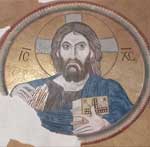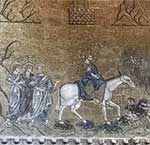
Joan Baez's - We Shall Overcome
30/04/2023
The first song in the CAROL-A-DAY tunes in this section during lockdown in December 2020 was the first record (on '78 rpm') we bought for our radiogram, Mary's Boy Child by Harry Belafonte. Harry Belafonte died this week aged 96. He had a successful career as a singer and actor, but he will always be remembered as one of the great activists of the 20th century. On the Civil Rights Marches from Selma to Montgomery, Alabama, in 1965 led by Dr Martin Luther King Jr, Belafonte assembled a group of fellow actors and musicians of black and white heritage to lend their support to the marchers. The song which will always be associated with this period in the USA and across the whole world is perhaps the most optimistic protest song ever, We Shall Overcome, and I bought a version by Joan Baez back in the 1960s,
https://www.youtube.com/watch?v=7akuOFp-ET8
Best wishes
Oppido et ruri


